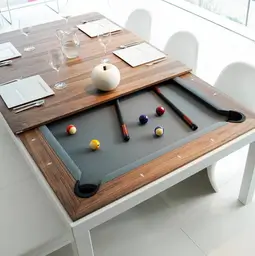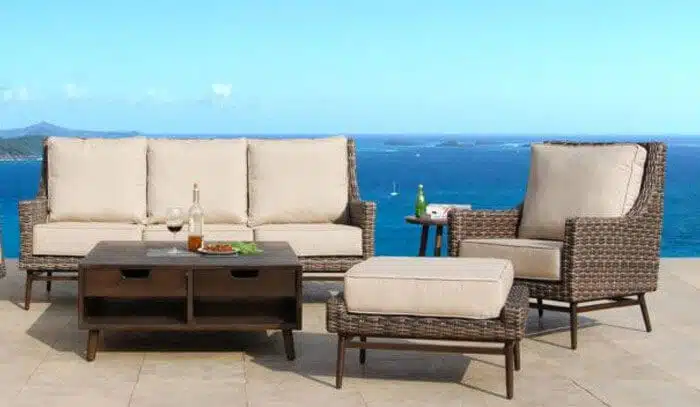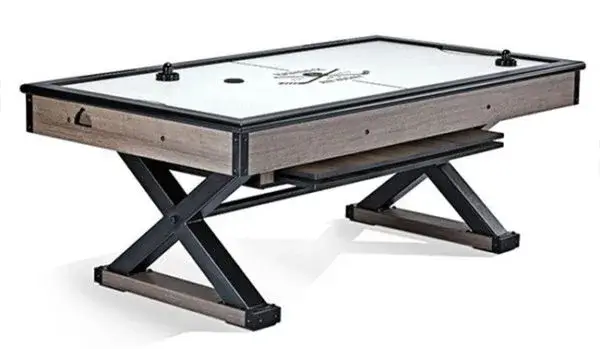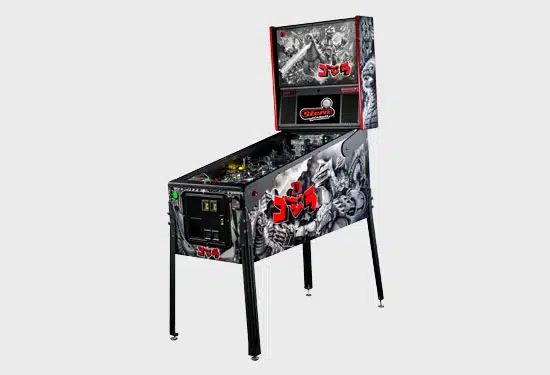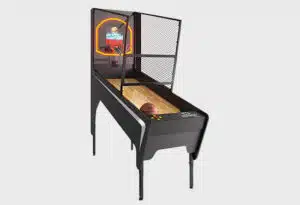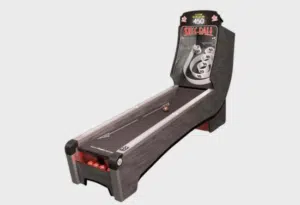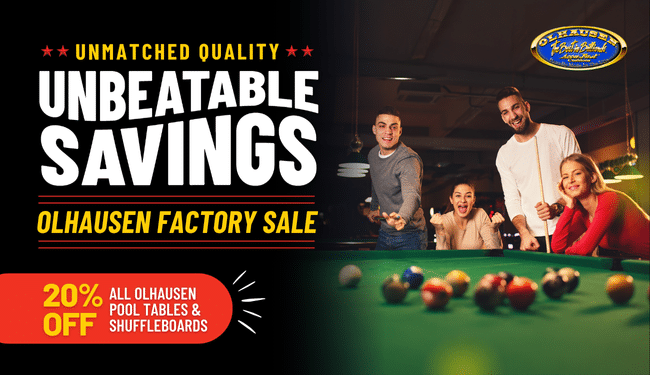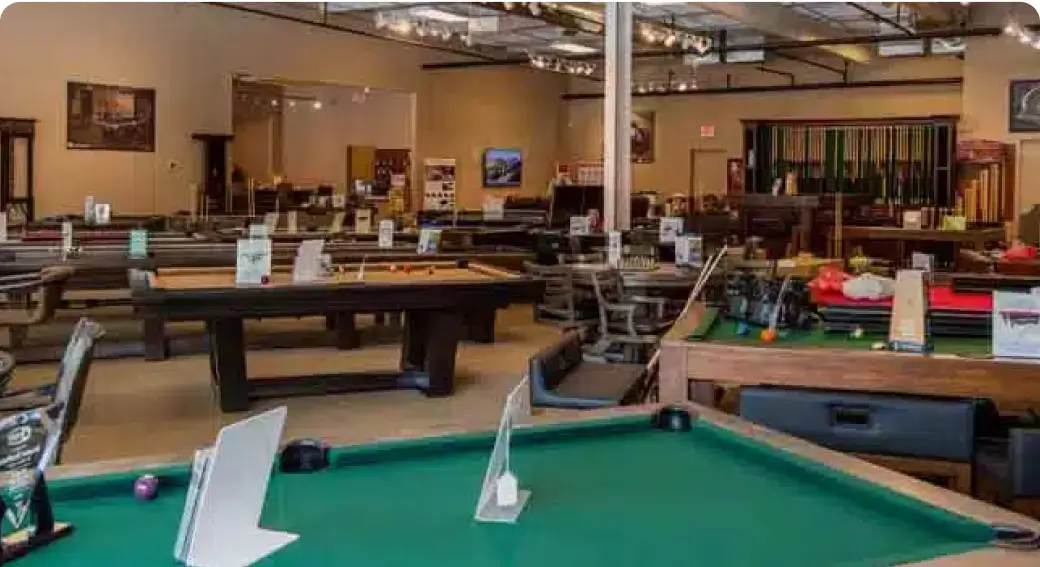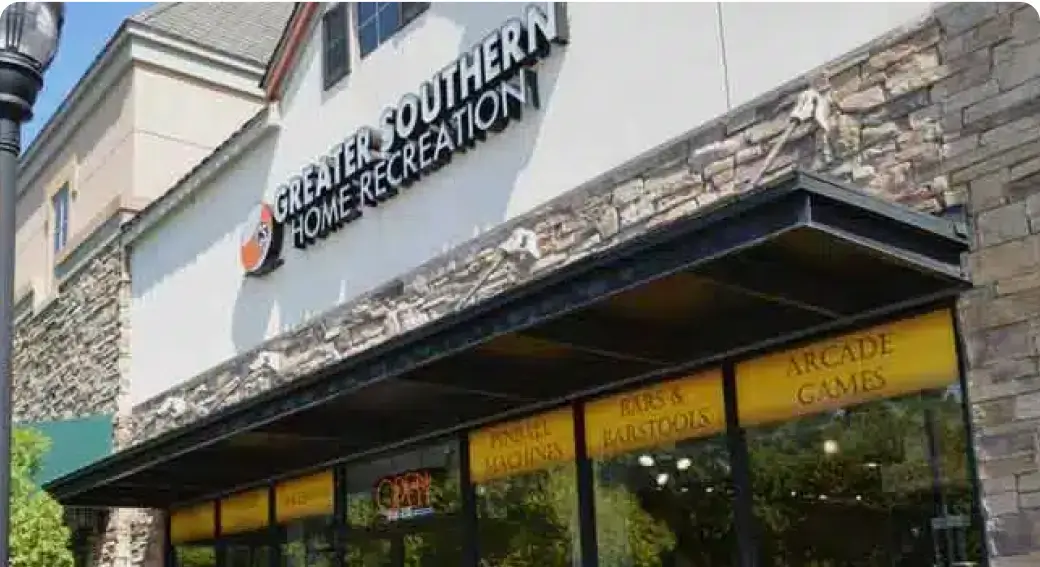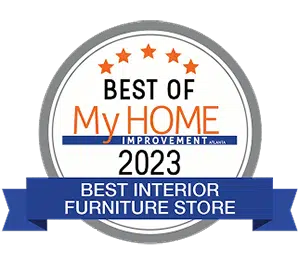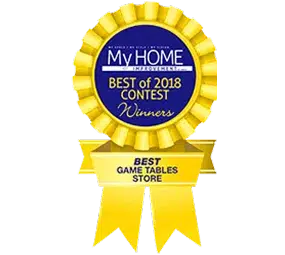- I know nothing about billiard tables, what should I be looking for?
Here are the basics that just about all of the major brand billiard tables have; the best brands out there will be focusing on the major keys of the game: accuracy and consistency.
- Slate You want a slate table. Standard (tournament certified) slate should be 1” thick and in 3 separate but matched pieces. There are thinner slate tables available, and there are 1 piece slate tables and even non-slate tables out there as well. Slate is required in order to provide a solid, perfectly smooth, precise, accurate and consistent playing surface that allows the billiard balls to roll in a straight and true fashion every time. Matched slate means that those 3 pieces were mined out of the ground together, stay together throughout the planning and milling processes, and remain together forever.
- Rubber cushions Most reputable brands use similar rubber cushions on their billiard tables. These are the parts of the table that provide rebound and bounce as you play the game. Having good quality rubber cushions ensures that your table will play consistently and accurately, and provide a lifetime of quality play. Lower quality rubber cushions will create “dead spots” along the rail so the ball won’t rebound—or bank—the same lively, consistent way over time.
- Cloth Another essential element to the basics of pool tables is the cloth. The cloth comes in different weights per yard; depending on whether the table is intended for home use, rugged bar use, or professional tournament use. Standard home use cloth is generally 21 oz. per yard. This gives you a slightly thicker, more controlled roll that is easier for most beginner/novice/family players to play on. The thinner, faster, cloths used in bars and tournaments have less fuzz, or “nap,” which speeds up the game and can be a fun way to “perk up” you’re table if you want a more challenging game or if you want to play like the pros. Lower-grade cloths will not provide the proper amount of accuracy and consistency.
- How much does a “good” pool table cost? How much should I spend? Example: I don’t want to spend a lot of money because I have kids and they’re just going to destroy it.
Dealing with families, we get this question a lot. It makes sense that you may be testing the waters… you’re hesitant because rowdy teens may just use the table as a dance floor and you don’t want to risk them destroying it or they may just not be into the game and never play. These are viable concerns. Most reputable table manufacturers build tables that are meant to take a “beating” and can withstand more than the furniture in your living room. Pool tables are meant to be played on and are constructed with that in mind.
Keep in mind, it’s a bigger risk to spend too little on your table than it is to spend a little more. There are $1000 tables, there are $100,000 tables and everything in between. As you go down in price, there are factors to consider. Less expensive tables must be made out of less durable materials; it may still be a 3 pc. slate table, but the cabinet may be particle board, or a softer, imported lumber. You don’t build furniture out of Georgia Pine trees for a reason; the fast growing trees are too soft to support the weight. Many times, the less expensive tables don’t hold up to the “abuse” and you end up needing to replace it after a short time. Pool tables are intended to be a one-time purchase . . . one that is meant to last through generations of use and abuse. Buy the highest quality table that your budget will allow; you’ll enjoy the experience more and feel comfortable about where you put your investment.
- What is the “BEST” billiard table?
The “best” billiard table is whatever table works best for you and your situation of usage. Just like anything else out there, there are good products and not so good products, GSHR can help you decide what is right for your needs. Is it for home or business use? How old are your children that will be playing on the table? Do you have teens or rowdy college students? Commercial use tables will have some structural difference that help them with the extra abuse and provide more durability. After you understand the “nuts and bolts” of pool table quality, construction, materials and function, in the end, it comes down to style, budget, and what looks good in your room and meets your tastes. Normally, the fancier the table looks, the more it will cost.
- What size pool table should I get? Is there a standard size?
Pool tables do require a good bit of space. It’s not much fun if you don’t have the space around it to play. Standard 8’ is the most common table size for home use. It’s big enough to provide a challenging game, but small enough to be manageable by kids and beginners. You need 13’6” x 17’ total unobstructed space in order to play on an 8’ table. The pro’s usually play on a 9’ table that requires 14’ x 18’ area to play. A larger table is definitely more challenging, which is good; but a larger table can be frustrating for beginners to learn the game and we don’t want anyone to lose interest in billiard right when they start. For more compact rooms, tables are available in a 7’ size which would need 12’6” x 16” area to play. If you’ve ever played on a coin operated pool table at a bar or arcade, those are 7’ tables. All these sizes are “regulation” so there’s nothing wrong with a 7’ table. It’s better to put in a 7’ table and use regular length cues than to attempt to squeeze a larger table but end up using short cues very often. Measure your room and we can advise you on what size table would work best for your room. We are also happy to provide in-home consultations.
- What size cue sticks should I get?
Short cues have 2 main purposes: space restrictions and youngsters. You might want a short cue if you’ve got a support pole or a wall corner to work around. Again, we can advise you on pool table size and cue length depending on the size of your room.
Beginners, young children, or even shorter adults sometimes prefer a shorter cue just for the sake of comfort. A shorter cue will feel different not just in length but in weight and balance. The best players in the world could beat you with a crooked broomstick; so play with whatever cue feels comfortable when you’re playing. Along with comfort will come consistency, accuracy and improvement of your game.
- How should I care for my pool table?
Pool table care is not that different from caring for any other piece of furniture in your home. Treat the exposed wood parts with a quality grade furniture polish and dust the table on a regular basis. You can treat the outside of the leather pockets with a quality leather oil or saddle soap periodically. DO NOT put anything on the inside of the pocket as that will leave residue on the balls and could affect the roll of the balls. Brushing the cloth on a regular basis, depending on how often you play, will keep away the fuzzy, map balls that can appear on newly “trained” cloth. Use the brush provided with your pool table accessory kit and brush in straight lines and always in the same direction. This will remove any loose fibers and create a smooth, uniform playing surface.
- What service may I ever need on my pool table? Who does that?
Our manufacturers are some of the best in the business; there’s not too many things that can go wrong with a pool table but we understand that anything is possible and stuff happens. GSHR has our own crew that we’ve worked with for over 15 years. You can contact us at any time and we can arrange for any service you may possibly need: re-felt, move jobs/disassembly, wood repair/refinishing—no job is beyond our expertise. Our manufacturers offer the most comprehensive warranties on their products; with brands like Brunswick, you don’t stay in business for over 165 years without offering outstanding products, warranties, and services.
Pool Tables
Outdoor & Patio
Game Room Furniture
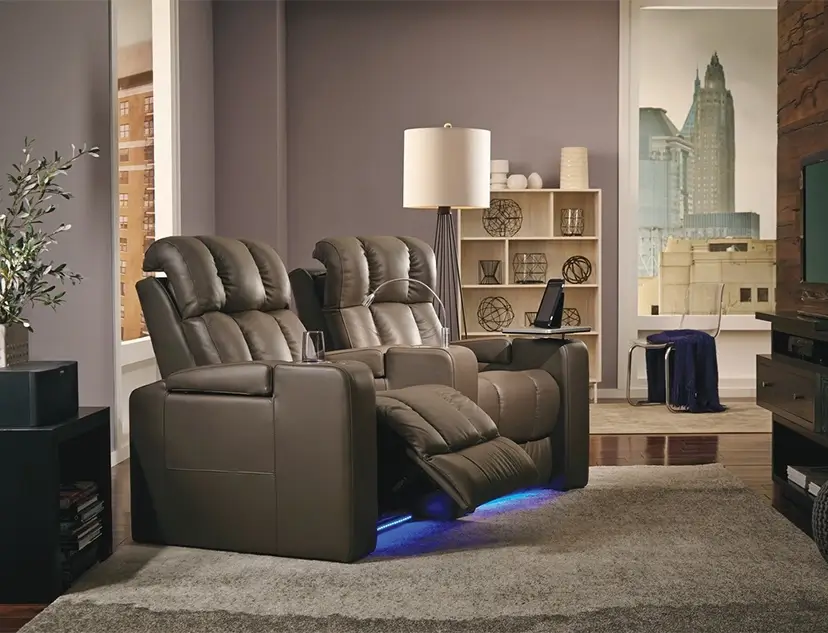
Games
Arcade
Accessories
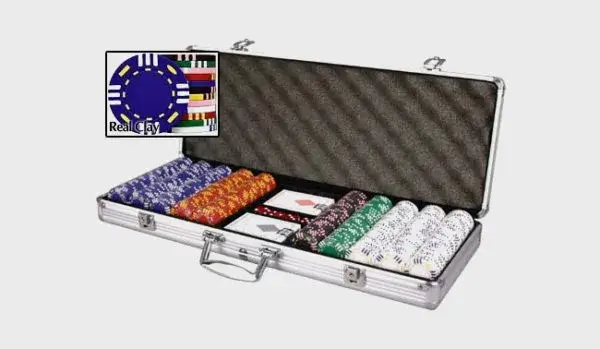
Services
Specials
